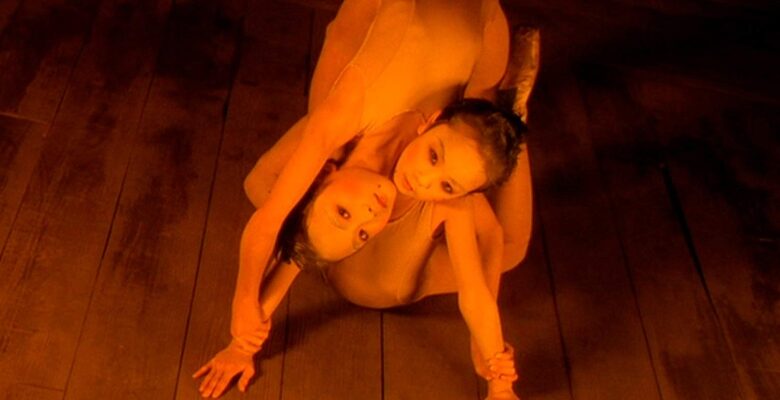Three and Three… Extremes (Blu-ray Review)

Horror anthologies are, by their nature, a mixed bag, often greater than the sum of their parts. Even the best of the genre, like Dead of Night, Creepshow or From Beyond the Grave, have the odd dud story. The issue is often that the butter is spread too thin, as too many ideas are packed into the runtime, leading to at least one throwaway story that feels like filler.
That isn’t the case with Three… Extremes – and, to a lesser extent, its predecessor Three – both of which favour quality over quantity. Each film features just three standalone stories, giving each story room to breathe, and allows the directors (including Park Chan Wook, Kim Jee Woon and Takashi Miike) space to showcase their own visual style.
Of the two, Three… Extremes is by far the more interesting film. It’s more visceral, more memorable, and, as the title suggests, far more extreme. Originally released under the Tartan Asia Extreme label, it stands as a showcase for the darker, more transgressive side of Asian cinema. Fruit Chan sets the tone immediately with Dumplings, a truly disturbing short following a washed up actress desperately trying to regain her youthful looks by any means necessary. She approaches a mysterious woman whose homemade dumplings promise eternal youth, but at an unspeakable cost. As her dumplings recipe is gradually revealed, the story becomes both grotesque and tragic. Chan’s film is a biting and skin-crawling parable about vanity, body horror, and sensitive cultural subjects in China; a sort of proto-The Substance that captures the lengths we’ll go to defy the ageing process.
Park Chan-wook‘s Cut is next; a superficially more lightweight story that follows a successful film director, kidnapped by a disgruntled extra who forces him into a nightmarish series of moral tests – with each failure costing his wife a finger. Park’s characteristic visual inventiveness and love of black comedy belie just how nasty this story gets – it’s a claustrophobic and viscerally unpleasant with a great performance from Byung-hun Lee, who sells his character’s sweaty desperation perfectly. It might occasionally veer into melodrama, but the execution is incredible, darkly comic and with visually sumptuous, baroque set design.
Then there’s Box. While the first two films are both heightened, and darkly comic, Takashi Miike’s segment is something else entirely. It’s a haunting story of guilt and repression told with icy precision, following a novelist haunted by childhood trauma. With Miike, you never quite know what you’ll get, the anarchic provocateur of Ichi the Killer or the playful filmmaker of Audition. Box finds him at his most restrained. It’s a beautifully shot, desperately sad tale, that recalls the gothic melancholy of Edgar Allan Poe. His use of elliptical, non-linear editing is ethereal and genuinely unsettling, unfolding like a waking nightmare. His use of sound design in particular is exquisite – deploying long silences to enhance the sense of disquiet.
Confusingly, Three… Extremes reached Western audiences before Three, which led many to dismiss the latter as a weaker follow-up, despite being made two years earlier. Being marketed misleadingly as Three… Extremes II certainly didn’t help matters. Kim Jee-woon‘s Memories is a pretty conventional ghost story, elevated by Kim Jee Woon’s assured direction, leading to an effectively spooky climax. Nonzee Nimibutr’s The Wheel is the only real misfire of either film, with uninspired direction and a plodding story, but it’s also the only short that makes an explicit link to its native culture, drawing on Thai folklore regarding puppets and spirit possession. The standout is Peter Chan‘s Going Home, a delicate, eerie story of love and obsession, beautifully shot by Christopher Doyle, with an intense central performance from Leon Lai. Three remains atmospheric and beautifully constructed, but the simple stories and relatively tame scares can’t help but feel a little quaint by today’s standards.
Three… Extremes, by contrast, feels a lot more subversive and vital. Rather than established genre conventions, the films are more concerned with specific, universal fears like ageing and childhood guilt. It might be the best example of a portmanteau horror that covers the breadth of the genre, offering a cross-section of how exciting horror can be when freed from formulaic horror conventions. What both films do, and do very well, is leave you with an unshakeable feeling of unease – there is no closure here.
Arrow’s new release is the best way to watch both these films – together they serve as a showcase of the diverse styles and shared fears of Asian horror cinema, from social satire to gothic tragedy. An assured collection of morbid stories, and perfect viewing for Halloween!
Limited Edition Blu-ray Special Features
- Cross-Pollination Horror Part 1 – a newly filmed interview with Going Home director Peter Ho-Sun Chan
- Recalling Memories – interview with Memories director Kim Jee-woon
- Making Memories – interview with Memories cinematographer Hong Kyoung-pyo
- Terror Without Borders – a 2005 interview with Peter Ho-Sun Chan
- Between Life and Death – a 2004 interview with Going Home star Eugenia Yuan
- Archival interviews with Peter Ho-Sun Chan and Kim Jee-woon
Three and Three… Extremes will be released by Arrow Video on 20 October
Source link
